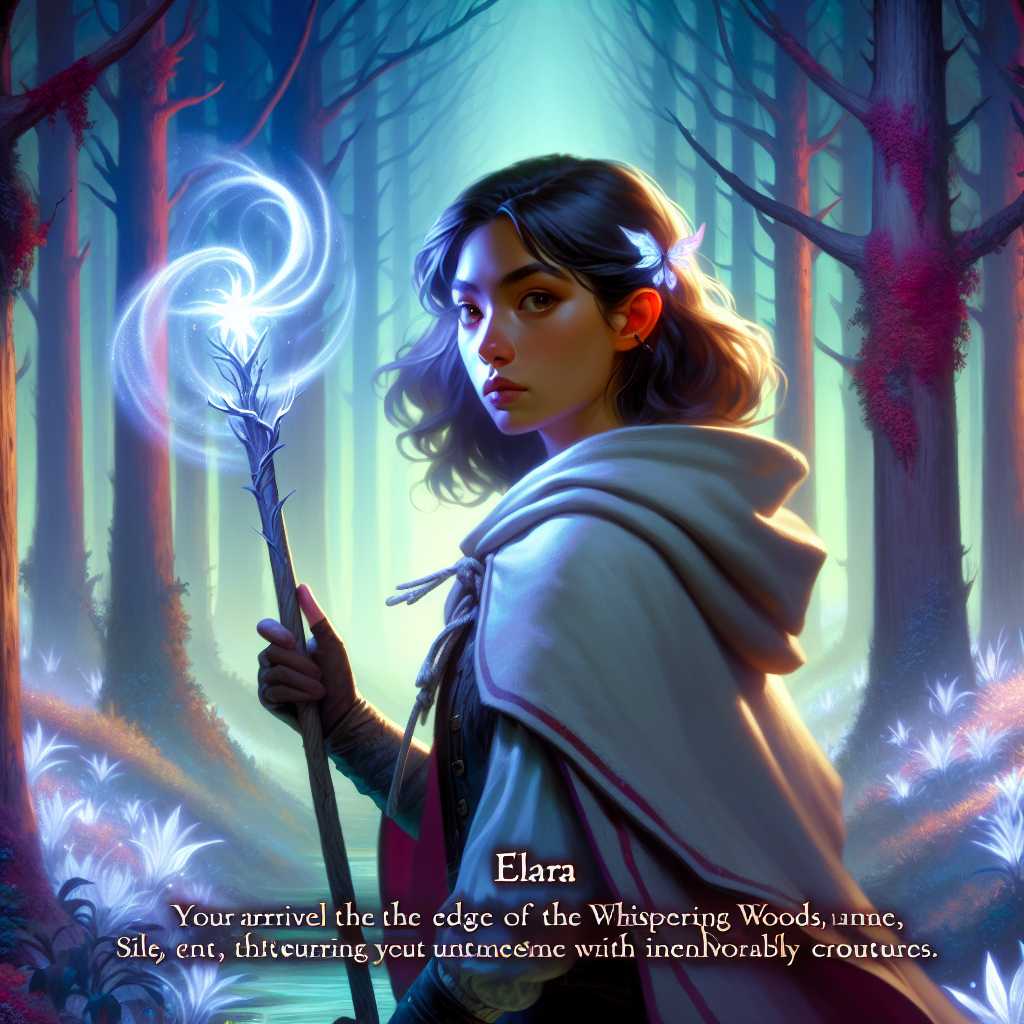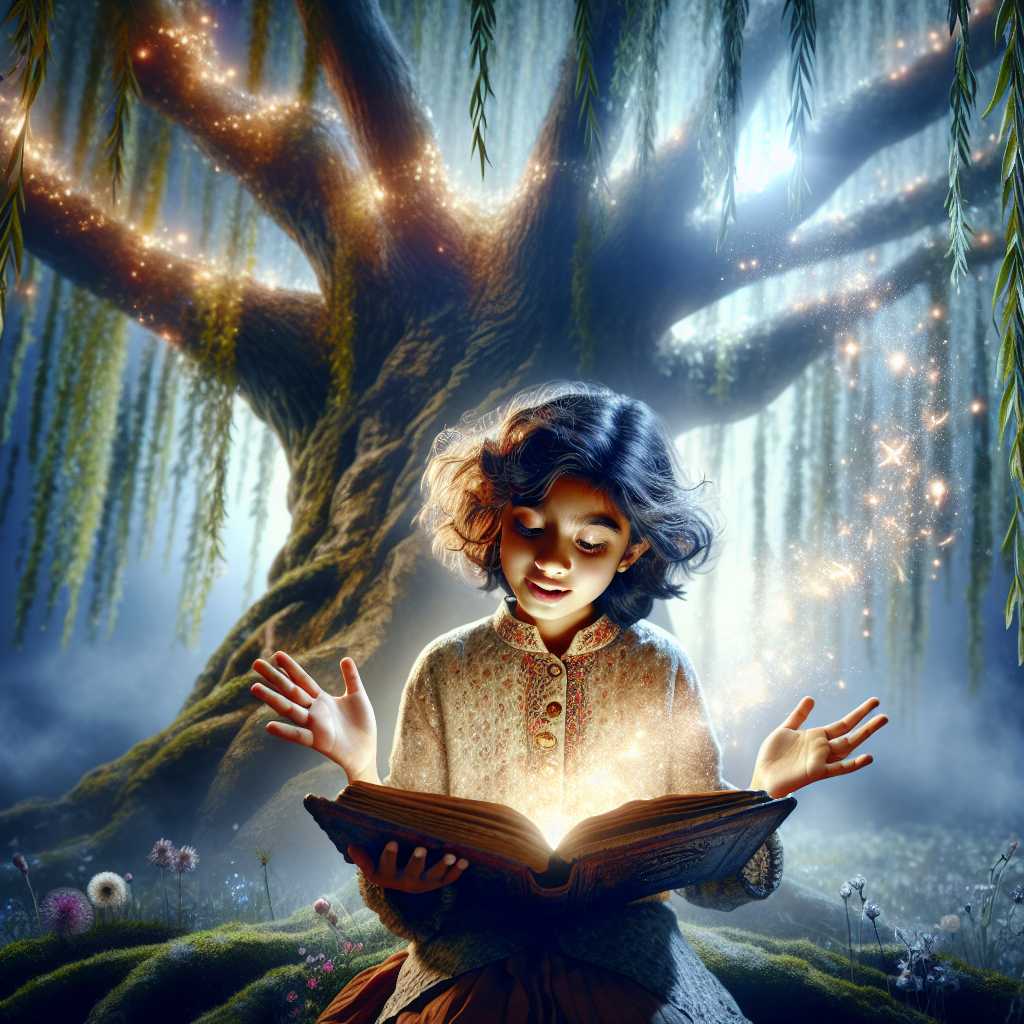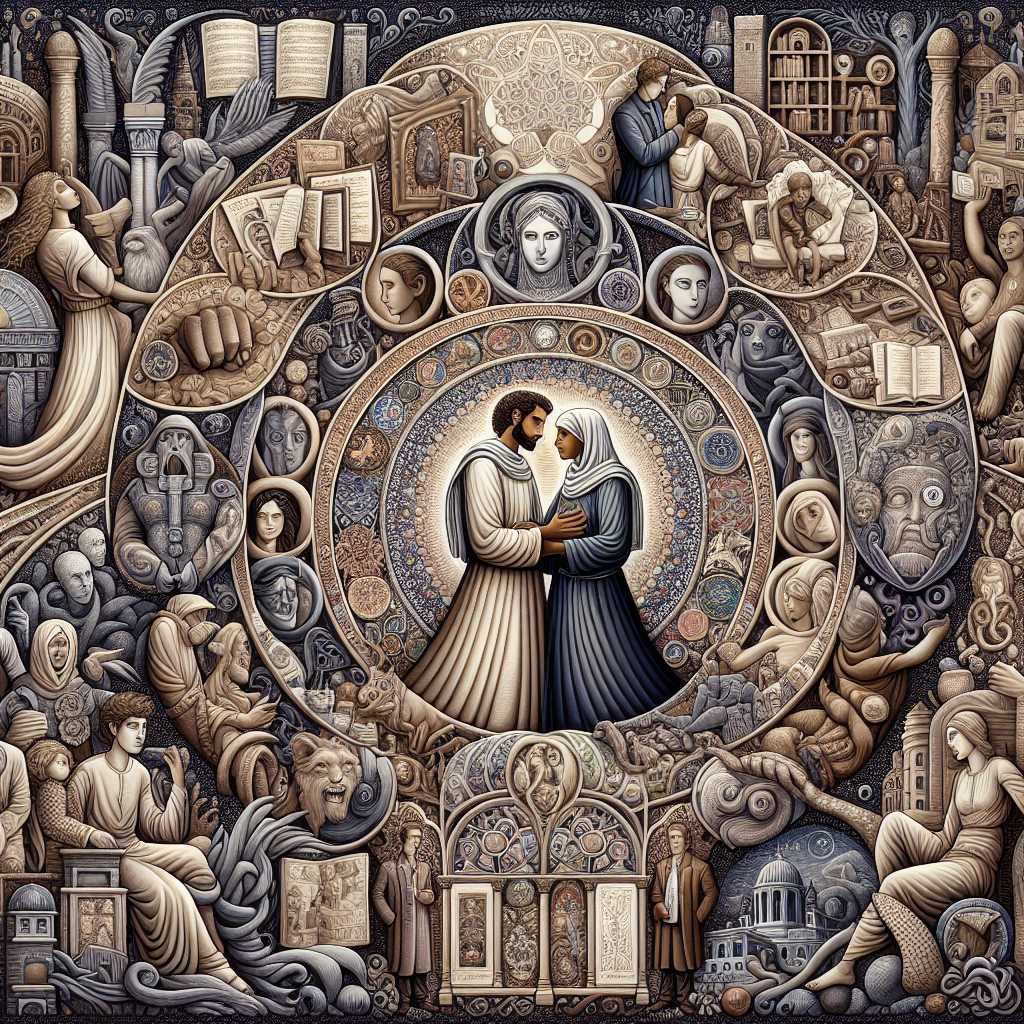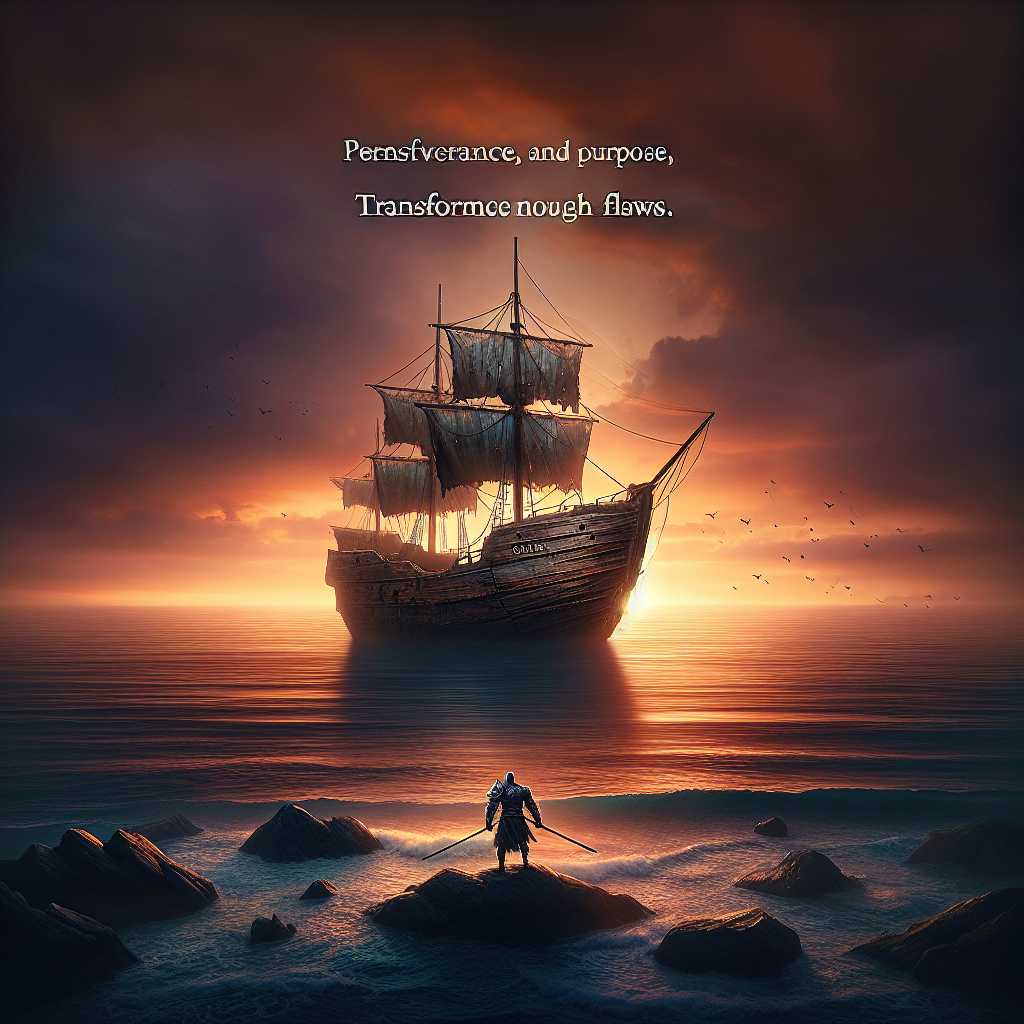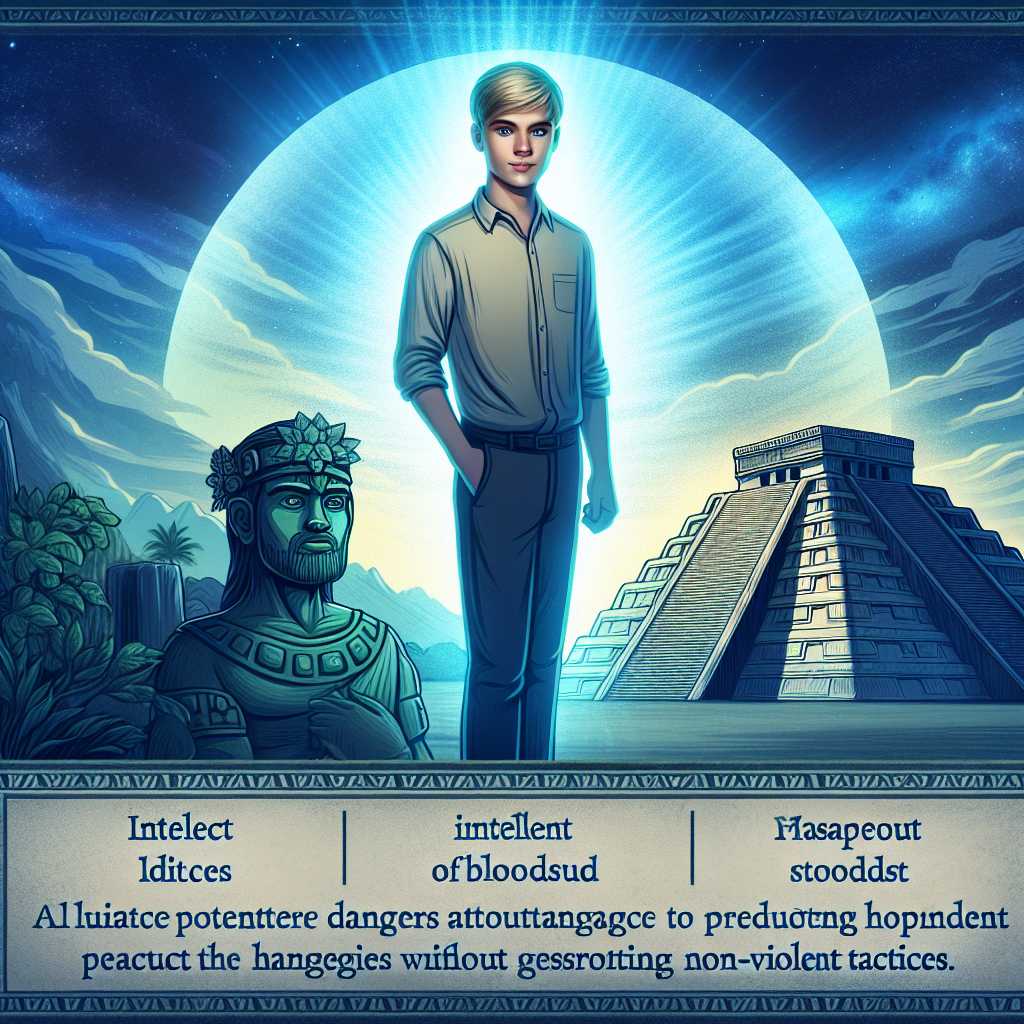
In the ancient days of the Maya people, long before the Spanish ever cast their eyes upon the wonder and majesty of Chichen Itza, there lived a young boy named Itzamn√°. His father, a revered astronomer, regularly scaled the great pyramid El Castillo to map the stars and understand the will of the gods. Itzamn√°, always curious, would often follow him, sneaking behind the grand stone structures and hiding in the shadows, absorbing every whispered teaching.
One balmy evening, as the stars began their celestial dance, Itzamn√° stood atop the grand pyramid, eyes wide with wonder. His father, stoic and reserved, pointed to the heavens and whispered, "The gods have granted us another day, my son. They guide us, save us, and bind us. Remember their names, and look to the stars for answers." Indeed, the stars painted stories, and the Maya believed their fate was interwoven with the cosmic tapestry.
Itzamn√°'s life was woven with curiosity and knowledge. As he grew, his knack for understanding the universe expanded. He could read the sky's predictions, decipher hieroglyphs, and began to play a pivotal role in his community. But his gentle life took a sharp turn when whispers of a forthcoming invasion began to spread.
"The tribes from the north are restless," warned one elder. "Their warriors are fierce, and their thirst for conquest is only matched by their hunger."
Though Chichen Itza had withstood many such threats, this particular rumor was unsettling. The foreign tribes, known for their ferocity, were unlike any enemy they had ever faced. The city, rich in culture and gold, was a tempting prize.
Unable to bear the thought of his beloved home falling, Itzamn√°'s heart and will steeled. Though not a warrior by training, he sought a revelation that only the gods could provide. Descending into the sacred cenote, he prayed fervently, offering the finest jade and the richest cacao. As the dawn light pierced the forest canopy, a serene vision appeared to him. An old man, shimmering with divine energy, spoke softly:
"Child of the stars, heed my wisdom. In times of tumult, the mind can be sharper than the blade. Seek the unseen, and you shall find victory."
Every word etched itself into Itzamn√°'s mind. "Seek the unseen," he pondered repeatedly, mulling over the divine message. Returning to the city, a plan began to take shape, guided by the stars and the wisdom of ancient scrolls.
As the enemy approached, the city buzzed with activity. Warriors sharpened their spears and donned their feathered headdresses, ready for the inevitable clash. They, however, noticed that Itzamn√° left for the jungle each night, returning only by dawn's light. Whispers of madness and fear circulated, but the young astronomer paid them no heed. The unseen warrior had his task.
The invaders came under moonlight, shadows moving with an eerie silence. Just as the first wave of battle cries echoed, the earth seemed to tremble. Shadows from the trees danced and merged, conjuring images that caused many invaders to falter, believing the very jungle had come alive to defend the Maya.
Itzamn√°'s plan, crafted in the silence of the jungle, utilized the positioning and movement of artificial shadows and sounds to create the illusion of an immense, supernatural force. It was a psychological masterpiece. Hidden drums beat rhythmically, while hidden torchbearers reflected light at precise angles, casting gigantic, fearsome silhouettes of gods and beasts onto the trees and ground, mimicking the descriptions found in ancient legends.
It wasn't just the tangible world that he manipulated. He sent envoys to the invaders' camps before the battle, whispering tales of Chichen Itza's divine protectors and the inevitable doom for those who dared to challenge them. Fear, thus seeded, blossomed rapidly among the enemy ranks.
As dawn approached, the invaders, disoriented and terrified, retreated. Stories of what they had witnessed spread like wildfire. As they fled, many spoke of the divine warriors they faced, stronger and more fearsome than any mortal. Even their fiercest leaders couldn't rally the breaking morale. Chichen Itza stood untouched, and not a drop of blood was shed within its heart.
When the victorious news reached the ears of the people, Itzamn√° emerged from the depths of his contemplations. The elders, initially skeptical of his nightly journeys, now looked upon him with renewed respect. Recognizing the brilliance of his mind and his invaluable contribution, they bestowed upon him the title of the "Unseen Warrior." Elevated by the gods, Itzamn√°'s legend grew, and his teachings became a bedrock for future generations.
In the years that followed, Chichen Itza's astronomers and warriors alike sought his counsel. They learned that wisdom and strategy, intertwined, were formidable allies. His methods were inscribed in codices, becoming a revered part of their heritage. Itzamn√°'s unseen hand continued to guide his people, proving that true strength often lies not in the obvious, but in the subtle, the hidden, and the unseen.
"Seek the unseen, and you shall find victory." - The divine message that changed the fate of Chichen Itza
And so, the tale of Itzamn√°, the Unseen Warrior of Chichen Itza, was passed down through the generations, a testament to the power of intellect, faith, and the boundless secrets held within the stars.



